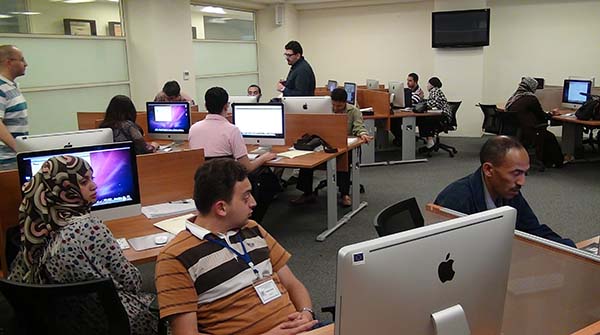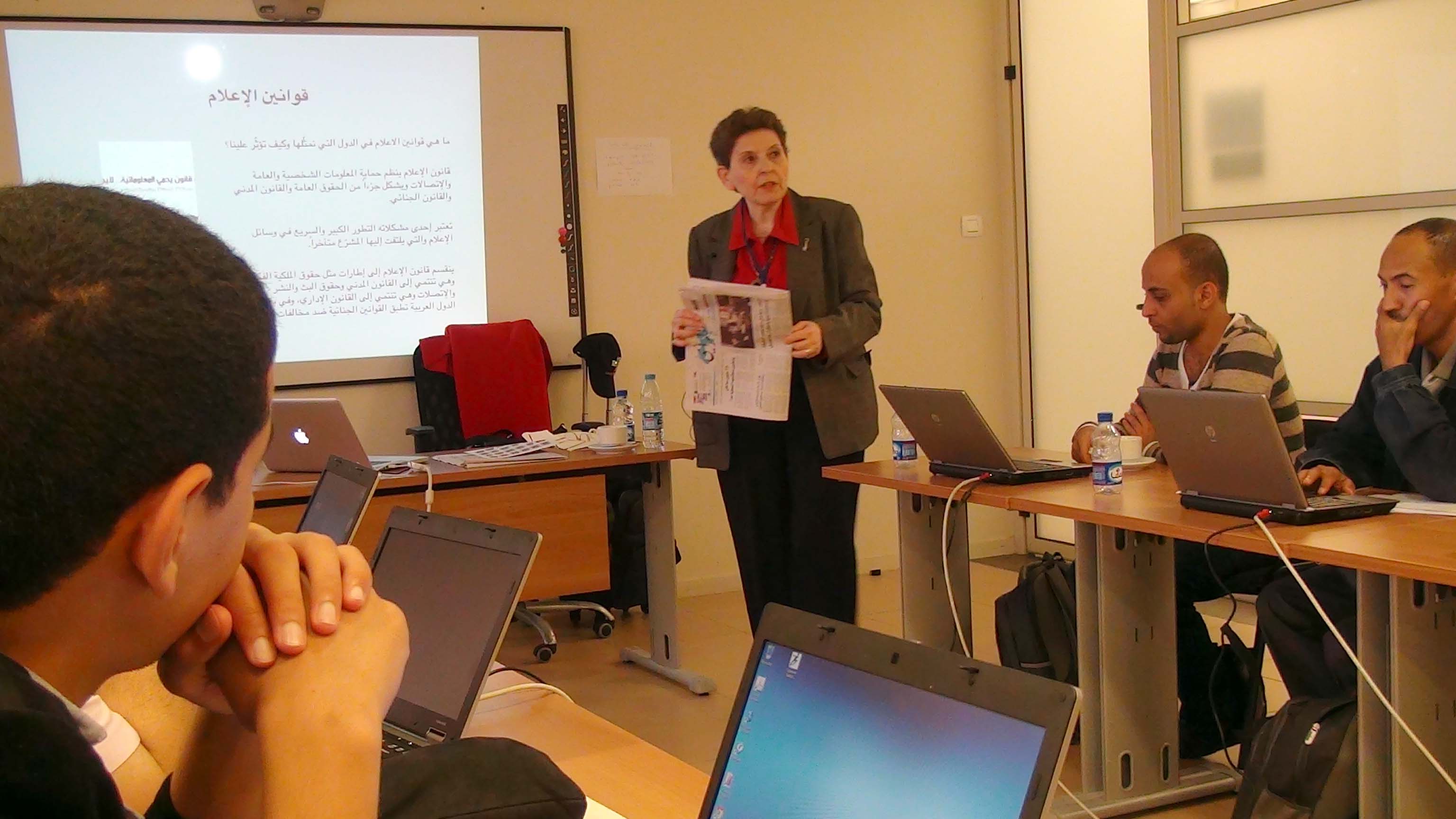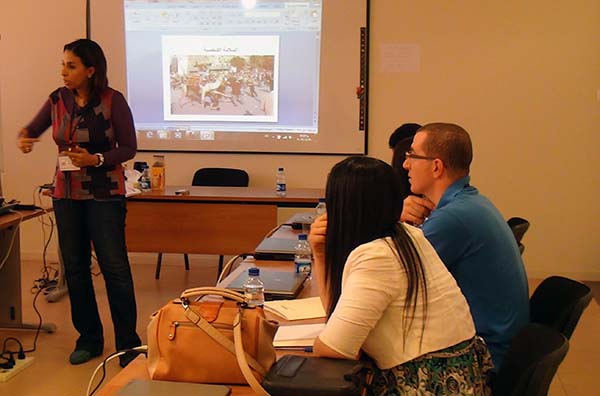A standing-room only hall of Lebanon-based netizens sharpened their skills, rubbed shoulders with experts and networked feverishly to expand their professional and online activist horizons.
Dubbed @SocialMediasPACE, a one-day fair in Beirut grouped activists, bloggers, journalists, Net newbies and geeks to “explore ways to leverage the power of digital technologies to foster civic engagement and social change.”
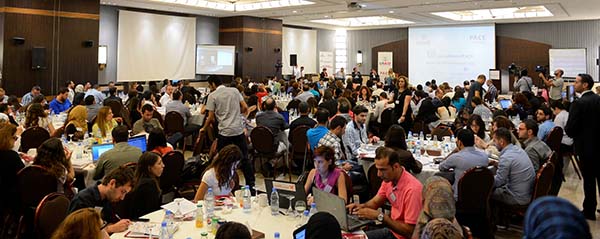
Lebanon-based netizens acquire online skills
“Google showed me how little I knew about marketing and personal branding,” admitted radio and TV talk show host Milad Hadchiti, the event’s MC who doubles as a branding coach, about his early encounters with the search engine and social media.
An introduction by media specialist Nada Hamzeh of The Promoting Active Citizen Engagement (PACE) program funded by the US Agency for International Development USAID), focused on ways to activate NGOs and civil society groups by building strategies for their social media and creating partnerships between different actors.
“The goal of this three-year $8.3 million PACE project, is to strengthen civil society’s ability to create a stronger civic culture and more democratic governance throughout Lebanon,” said Denise O’Toole, director of the Education, Democracy & Governance at USAID/Lebanon. “So far, a number of initiatives have been launched and successfully implemented under PACE to empower local organizations to become catalysts for change on a variety of issues in their respective communities.”
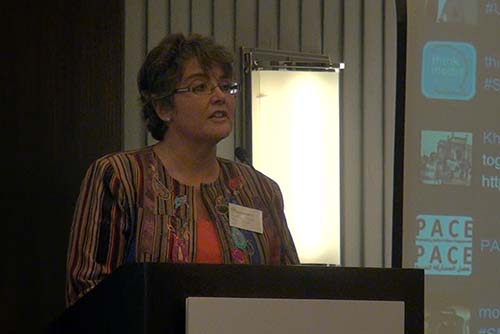
USAID’s Denise O’Toole
A first panel on content, not tools, featured cyber advocacy expert Imad Bazzi (a/k/a Trella), IndyAct communications director Ali Fakhry, Kazamedia founder Ahmad Karout and Online Collaborative digital marketer Darine Sabbagh.
“We can use cyberspace to send out political messages,” said Bazzi, who with cohorts launched a teasing campaign dubbed “Laehat Abeeh Nafsi” (I Sell Myself List) with frivolous content ahead of planned legislative elections in Lebanon.

Screen shot of Imad Bazzi’s (Trella) home page
Media Unlimited director Magda Abu-Fadil chaired a panel entitled “Alliances that pay off: Convergence between traditional and social media, civil society and marketing professionals.”
“We’ve gone from video cassette tapes to mobiles and with the development of social media it’s good to be in touch with the people,” said Tania Mehanna, senior reporter/correspondent at LBCI TV.
Other panelists were Omar Sadek, managing director at J. Walter Thompson, Patrick Richa, head of web and news services at MTV-Lebanon, and Riad Kobeissi, investigative journalist at Al Jadeed TV.
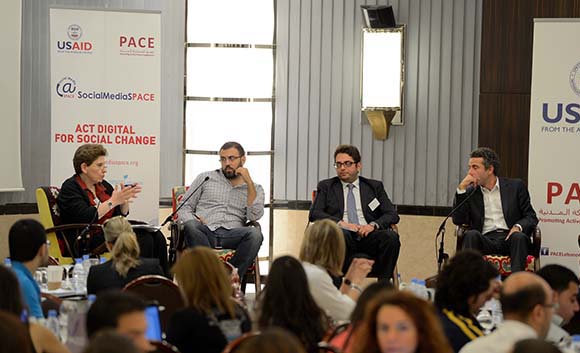
MU’s Abu-Fadil chairs panel grouping Riad Kobeissi, Patrick Richa and Omar Sadek
According to Sadek, private companies are becoming more involved in corporate social responsibility and trying to mix profits with their role in society.
“Media firms need content to draw in audiences. The alliance between NGOs and media via marketing companies is attracting more attention and can lead to the public good,” he added.
Networking was paramount at the confab. The program included social media roundtables using free and open source software, online safety and privacy, and consultancy booths featuring crowdsourcing and multimedia platform management.
The event was covered extensively by Lebanese media (PDF).


